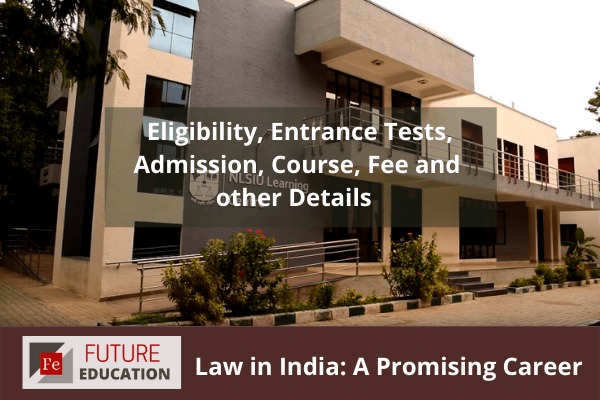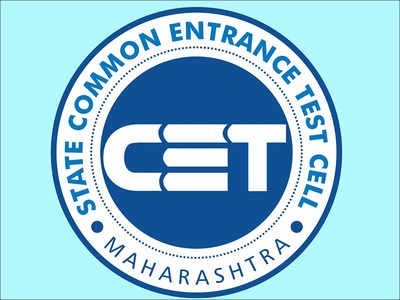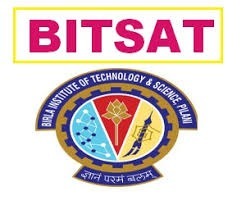

Law in India: Eligibility, Entrance Tests, Admission and Career Role
Law in India: A Promising Career
Law in India has become a dignified form of career aspect in India in recent years. Law as a career has acquired immense dignity and recognition in India. Pursuing law for career growth is in demand nowadays. Students having a dream of a successful career with vast opportunities can certainly choose this field to own a successful career in the field of law. The primary job done by a lawyer is to provide legal protection to its clients in the honorable court of the country. It offers a variety of jobs including initiating Lawsuits, protecting interests by defending in the court, preparing legal documents, and performing law-related research, etc. A lawyer needs to play a role for all sorts of clients including an individual to a government entity. Various fields require specialized law experts that can protect the interest of an individual.
Studying law requires certain criteria to be fulfilled in order to get eligible for the entire course. In the current scenario, the advancement of technological development opens a variety of options for lawyers in India. Today there are many specializations that can be availed by the aspirants who are pursuing law. Many corporate hubs, IT Firms, Media houses, etc hire a law firm to protect their interests. Hence law in India has been a promising career to pursue. Law has acquired immense dignity and relevance. It is now very demanding and has become a promising field to pursue a career with growth and success. There are many job opportunities provided by law. Nowadays a firewall of law has been essential for many national and state-level establishments. Many public and private organizations seek indulgence in order to protect their interests. Corporate houses, real estate industries, IT firms, Media houses, etc are constantly remain in touch with the Law firms so that their Interests can be protected.
Law in India: Courses to be a Lawyer
There are 3 types of courses in India to pursue Law as a career. All courses have different eligibility criteria to get enrolled. Types of courses that can be opted by the aspirants to pursue Law are as follows :
Integrated LL.B Courses :
Various National and state Universities offer Integrated LL.B Courses for those candidates who are 10+2 passed. The required Passing percentage may vary from college to college. This course includes various options such as :
- BA LL.B
- B.SC LL.B
- B.COM LL.B
- BBA LL.B
The duration of this course is 5 years and then the candidate will become a Law Graduate. However, the candidate is still required to obtain a license to practice from the Bar Council of India or the respective state.
LL.B Course :
This course can be pursued only by Law Graduates. There are no restrictions on the subject combinations. Candidates from Science, Arts, or Commerce background can do this course to be a Lawyer. The duration of this course is 3 years which is furcated into semesters.
LLM :
This is a Master’s Course and the eligibility of this course is confined only to those candidates who have done LL.B. Duration of this course is 2 years. This course is a kind of specialization in Law and it’s been important to pursue this course to be more demanding.
Law in India: Eligibility Criteria
To get a bachelor’s degree or masters in Law, One needs to fulfill certain eligibility criteria in order to get a seat in reputed law colleges in the country. Eligibility criteria to get admission in Central University/Law colleges are as follows :
- Candidates need to pass 10+2 with any stream to pursue integrated courses like BA LL.B, B.SC LL.B, B.COM LL.B, and BBA LL.B with a duration of 5 yrs. The required percentage is subjected to change as per the institutional demand.
- Candidates are required to graduate in any stream possessing 50% of marks in order to pursue LL.B. The duration of this course is 3 yrs.
- For the Masters in Law, Candidates are required to be a Law Graduate with at least 50% marks. The required percentage is subject to change as per the Institution’s demand.
Law in India: Types of Institutions
This is very crucial to be aware of the institutions where an aspirant is going to pursue Law studies. For general information there are only 3 types of institutions where one can seek admission in order to pursue a career in Law, which are as follows :
- Public University
- National Law School
- Private Institution
All the above-mentioned Institutions or Universities provide admission to law aspirants as per the score they obtained at a certain entrance exam. However, the basic requirement is to have a minimum of 50% marks in graduation in order to secure a seat in a Law School/College to pursue LL.B Course.
Law in India: Entrance Tests
Since Law is a very promising career to choose, an aspirant looking for a decent job opportunity must secure a seat in a reputed Law school/College by cracking Law Entrance Exams in India. If a candidate is fulfilling the basic requirement to get eligible in appearing Law Entrance Tests then He/She must be aware of the different entrance tests conducted in India at various levels.
There are three types of Law entrance tests that are being conducted in the country to provide admissions in various Law schools/Colleges. Types of entrance exams are as follows :
Top National Level Law Entrance Test
Candidates seeking admission to the Top Law Institutes in the country should certainly
prepare to appear in the National Law Tests. Qualified candidates will be eligible to participate in the counseling that occurs after preparing merit lists which will lead the candidate to get admission to that particular institute. Some of the popular National Entrance Exams are as follows :
- Common Law Admission Test (CLAT)
- Law School Admission Test (LSAT)
- All India Law Entrance Test (AILET)
- Army Institute of Law Entrance Test (AIL Entrance test)
- Symbiosis Law Entrance Test (SLET)
- Bharti Vidyapeeth Common Entrance Test (BVP CET)
Top State level Law Entrance Test
Various states in India conduct Entrance tests in order to provide admission to the respective state colleges and Institutions. There are certain domicile and reservation criteria to provide admission. Some of the state-level entrance tests for LL.B are as follows :
- Maharashtra Common Entrance Test (MH CET)
- Christ University Law Entrance Exam (CULEE)
- Uttar Pradesh Law Studies Aptitude Test (ULSAT)
- Andhra Pradesh Law Common Entrance Test (AP LAWCET)
- Tamilnadu State Law Common Entrance Test (TS LAWCET)
- Kerala Law Entrance Exam (KLEE)
- Delhi University LLB Entrance Exam (DU LLB)
- Law Faculty Admission Test (LFAT)
Top University/Institutional level Law Entrance Test
Many reputed institutions in the country produce law professions from various courses of Law. The institutions conduct their entrance tests in which an aspirant can appear to be eligible for taking admission in that particular Law Institution. Following Law, Colleges are well known for the Law Professionals that they produce. Details of some popular Institutional level entrance tests are as follows :
- Banaras Hindu University Undergraduate Entrance Test (BHU UET)
- Indraprastha University Common Entrance Test (IPU CET)
- Kalinga Institute of Industrial Technology Entrance Examination (KIIT EE)
- Telangana State Post Graduation Law Common Entrance Test (TS PGLCET)
- Jamia Millia Islamia Law Entrance Test
- Punjab University Law Entrance Exam (PU LL.B LEE)
Law in India: Role as a lawyer and career opportunities
There are tons of jobs in the private and public sector for a candidate after having an LL.B degree in India. There is certain eligibility that needs to be possessed by a law graduate. All law graduates in the country need to clear the AIBE Exam in order to practice law in India. The AIBE stands for All India Bar Exam. BCI (Bar Council of India) is the sole authority to supervise the process for granting a practice license to a Law Graduate in India. AIBE exam is conducted for all the law graduates who want to pursue Law as a career in India. The bar council of India and the respective states of the country closely monitor and supervise the Law entrance exams in India. Any aspirant within the country has to obtain a ‘Certificate of Practice’ approved by the Bar Council of India.
Frequently Asked Questions
Ques: Is Mathematics necessary to pursue Law in India?
Ans: No, the only graduation is quite enough to pursue LL.B. for integrated courses like BA LL.B, B.Sc LL.B, BBA LL.B, and B.Com LLB aspirants require to pass 10+2 with 50% marks.
Ques: Is there any counseling process for admission in Law?
Ans: yes, there will be a counseling process through which every candidate has to go through in order to secure a Law seat in a reputed Law college to Pursue LL.B.
Ques: is pursuing Law worth in India?
Ans: Obviously Law in India offers tons of employment opportunities in both the Private and Public sectors. There is a radiant career after having a Law Degree in India.
Powered by Froala Editor








Comment (0)
Leave a comment